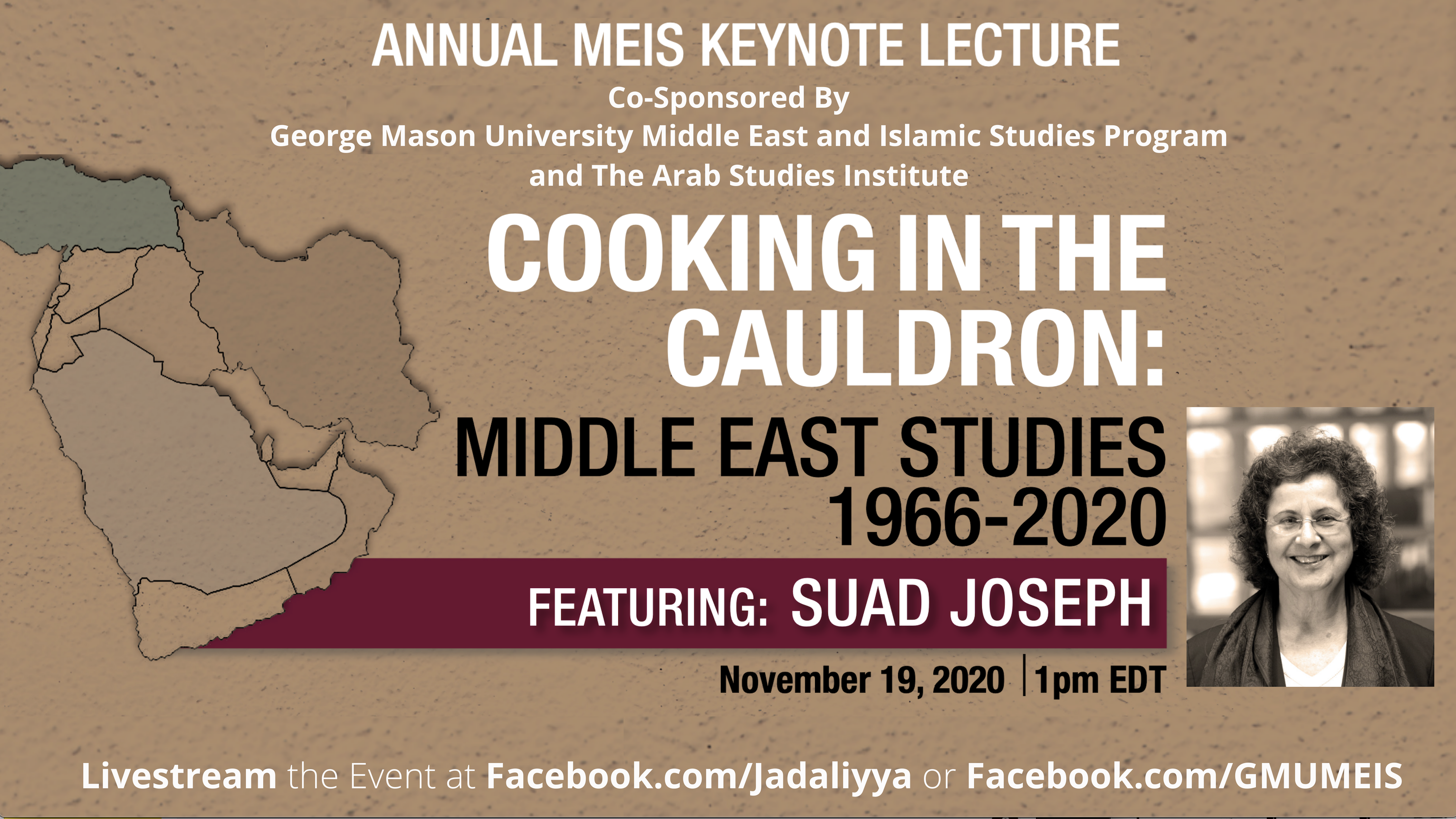GMU'S Middle East and Islamic Studies Program
Presents the Annual MEIS Keynote Lecture:
Cooking in the Cauldron:
Middle East Studies 1966-2020
Featuring Suad Joseph
Co-sponsored by:
George Mason University's Center for Global Islamic Studies
and the Arab Studies Institute
19 November 2020 | 1pm EDT
Watch on Facebook.com/Jadaliyya or Facebook.com/GMUMEIS

Featuring Suad Joseph
Distinguished Research Professor
University of California, Davis
Suad Joseph is Distinguished Research Professor of Anthropology and Gender, Sexuality, and Women's Studies. Her research has focused on her native Lebanon, on the politicization of religion; on local communities; on women, family and state; and on questions of self, citizenship, and rights. Her current research is a long-term longitudinal study on how children in a village of Lebanon learn their notions of rights, responsibilities and citizenship in the aftermath of the Civil War and on their transnational families who have moved to the United States and Canada. She is founder the Middle East Research Group in Anthropology (name changed to Middle East Section of the American Anthropological Association). She is founder and Founding Director of the Middle East/South Asia Studies Program, UC Davis. She is founder and director of the Arab Families Working Group (AFWG); founder of the Association for Middle East Women's Studies (AMEWS) and co-founder of AMEW's Journal of Middle East Women's Studies (JMEWS); founder and Director of the University of California Davis Arab Region Consortium which includes American University of Beirut, the American University in Cairo, the Lebanese American University, the University of California and Birzeit and American University of Sharjah. She is currently directing three new projects for UCDAR: Mapping the Production of Knowledge on Women and Gender in the Arab Region; Transforming Refugee Mental Health; Gendering STEM Educatdion. She served as the President of the Middle East Studies Association of North America, 2010-2011. She is Founding and General Editor of the Encyclopedia of Women and Islamic Cultures. Her edited books include: Arab Family Studies: Critical Reviews (Syracuse, 2018); Women and Islamic Cultures: Disciplinary Paradigms and Approaches (Brill, 2013l); Gender and Citizenship in the Middle East (Syracuse, 2000), and Intimate Selving in Arab Families (Syracuse, 1999). Her co-edited books include: Arab American Women: Representation and Resistance (Syracuse, In Press); Building Citizenship in Lebanon (Lebanese American University, 1999); Women and Citizenship in Lebanon (1999) and Women and Power in the Middle East (University of Pennsylvania Press, 2001); and Muslim-Christian Conflicts: Economic, Political, and Social Origins (Westview, 1978). She has published over 100 articles, and won many awards and prizes including the UC Davis Undergraduate Teaching and Research Award, and the Middle East Studies Association’s Jere L. Bacharach Service Award and the UC Davis Edward A. Dickson Emeriti Professorship. (http://sjoseph.ucdavis.edu )
